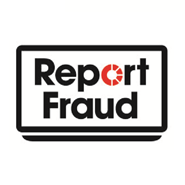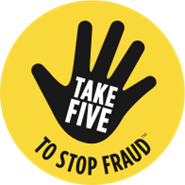
Advanced Fee Scam
How to protect yourself from scammers who try to convince you to pay an upfront fee to receive a prize/service, high value goods or loans which never happen.
What is an Advanced fee scam?
In an advance fee scam, a criminal convinces their victim to pay a fee which they claim will result in the release of a much larger payment or as a deposit for high-value goods and holidays. These scams include claims from the criminals that the victim has won an overseas lottery, that gold or jewellery is being held at customs or that an inheritance is due. The fraudster tells the victims that a fee must be paid to release the funds or goods, however, when the payment is made, the promised goods or money never materialise. These scams often begin on social media or with an email, or a letter sent by the criminal to the victim.

Social Media
Beware of offers, prizes, or investment tips on social media. Scammers may impersonate trusted individuals or businesses to make their request credible. If it’s too good to be true, stop and think.

Urgent requests
Scammers tend to apply pressure and a sense of urgency to rush you to pay an advance fee quickly. If you asked to act immediately to claim a prize or transaction, always remember a legitimate company would never apply time constraints.

Upfront payments
You often asked to pay an upfront fee to receive prize, service, or goods by a convincing message to gain trust. However, once the fee is paid, they will disappear – always question claims goods that haven’t ordered or entered.
How it could happen to you
- After a job interview, you're offered a job and told you need to pay a fee to cover background checks or a training course. You pay, and then find out the job doesn't really exist
- You see a great deal on a rental property, but you're told you can't look round. They ask you for a deposit to secure the rental and later you find out the property isn't really available
- You pay to enter a competition on social media, but it isn't real and no prizes are ever drawn
- Someone contacts you to say you've won a competition – it could be one you've entered, or one you've never heard of. They ask you to pay a fee to get your prize, but you never receive anything
- You're looking for a loan and find one that suits your needs, but you're asked to pay an admin fee to secure it
- You receive an unexpected call to say that you've inherited money from a long-lost relative but you need to pay a fee to get it. The scammer might say that the fee will be used as a deposit or an administrative charge, and returned to you later
How to spot a payment in advance scam
- You’re asked to pay an upfront fee to receive money, a prize/service or goods that you weren’t expecting
- You’re asked to pay an upfront fee for a training programme or a background check for a job that may not exist
- You’re told that fees are fully refundable and will be used as a deposit, administrative charge or for insurance
- There are follow-up fees you need to pay in order to secure the loan, prize/service or goods
- You are put under pressure to pay quickly by wire, bank transfer or cryptocurrency
- The domain name doesn’t match that of the sender of the email e.g., gov.uk
How to protect yourself
- Research any company offering a job on social media. Check whether they have a website or an office address
- Don't click links from job adverts on social media – type the address into the browser to make sure you're going to the genuine website
- Don't pay money to a company before starting a job
- Use well-known estate agents, and don't sign a rental agreement if you can't visit the property
- Be cautious of competitions or adverts on social media that ask you to pay to enter, or anyone asking you to pay to access something you've won
- Always be suspicious of requests to pay for goods or services you haven’t ordered or are unaware of, especially if you’ve had to pay fees upfront
- If you’ve been contacted by someone claiming to be from a company, always phone back on a number you know to be correct
- Remember – you can't win a lottery or competition that you haven’t entered
- Question anything that seems too good to be true – it usually is.
Other types of common scams
Fraud and Security
Investment scams
Staying safe from fraudsters impersonating people or organisations you trust
Fraud and Security
Impersonation scam
How to spot when scammers are promoting goods or services that don’t exist.
Useful Resources

Report Fraud
Report Fraud is the UK's national reporting centre for fraud and cybercrime. This is where you should report fraud.

Get Safe Online
Get Safe Online is the UK's leading awareness resource, and offers free online security advice to help protect people and businesses from fraud and other issues.

Take Five
Take Five offer impartial advice to help prevent email, phone and online fraud. The national campaign focuses on criminals who impersonate trusted organisations and gives you tools to help fight fraud.